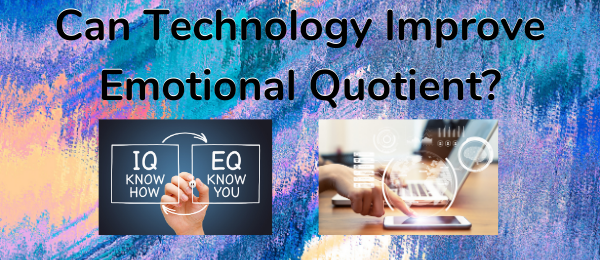Can Technology Improve Emotional Quotient?
CCSS, CEWS, and CRS, Oh My!
Education is a veritable bowl of alphabet soup. There are few acronyms that get closer attention or cause more anxiety than those representing Common Core State Standards, Career Education and Work Standards, and Career Readiness Skills. However, states have shifted focus to stress the importance of emotional quotient and technology has met its call.
When it comes to helping our students grow socially and emotionally, visions of small group collaboration, practices in empathy, and the nerves of presenting in front of an audience may come to mind. As the current academic landscape requires more online learning, these most important skills can still be exercised. A growing body of evidence suggests that social-emotional learning can be taught virtually with success. Check out: Social-Emotional Learning Competencies Get a Boost from Classroom Technology.
Social-emotional learning curricula can be enhanced through technology such as cloud platforms and other strategies that engage learners’ collaboration and communication. Using a variety of approaches that are sequenced, active, focused, and explicit has been found to meet the needs of contemporary students. A 2018 Pew Research Center study found that 95 percent of U.S. teens now have access to a smartphone. This must be recognized in order for these digital natives to be reached. There has never been a more important moment for educators to insist on evidence-based strategies and practices to lift the next generations of children to their full potential.
When the school culture calls for instruction geared toward high-stakes testing, the importance of emotional intelligence is often omitted. This requires a renewed clarity around what curricular quality means, and what it looks like in different contexts and communities. Using technology to boost emotional quotient while meeting common core standards is a powerful way to promote education of the whole child. With virtual learning environments becoming more commonplace, educators are called to once again consider the best way to meet individual student needs not only academically, but socially and emotionally as well.
A quote often attributed to Maya Angelou notes that, “people will forget what you said, people will forget what you did, but people will never forget how you made them feel.” Anyone that prescribes to this notion will agree that academic learning cannot take place if students are not prepared to learn. That means the needs of the whole child must be considered. But, are academic decision makers putting the cart before the horse? The SEL needs of the adults tasked with engaging student’s needs cannot be overlooked. Check out: Strengthening Adult SEL.
Dr. Colapietro is the instructor of Eduspire’s SEL course, “Using Tech to Teach the Whole Child.”

